Finding the right place to get scuba certified can be a daunting task. In the Caribbean alone, there are tons of different islands, countries, and territories to choose from and within those islands, are plenty more dive shops and companies. I recently completed my PADI open water diving certification with the Belize Pro Dive Center and I firmly believe that they are one of the best places to get scuba certified in the Caribbean. Here’s a review of my experience and some things you might want to consider.
Factors to consider
There are two main things I considered when getting certified: the quality of the dive shop and the location of the diving.
1. Quality of the dive shop
The first consideration for me was the quality of the dive shop, and I judged quality on three factors: 1. communication and organization, 2. instruction, and 3. equipment.
a) Communication and organization
When you’re venturing to a foreign country, especially for something like getting scuba certified, you really want to be able to communicate easily with the company you’ve chosen. From the time that you first contact the Belize Pro Dive Center to make your booking you’ll receive prompt responses from the team that will make you feel good about your booking.
The team will also arrange for your morning pick-up via boat if needed and take care of getting you back to your destination wherever you are staying. And once you’re at the dive shop, you’ll find plenty of staff members who speak great English and a system that’s ran in a well-organized way.
b) Quality of instruction
When you’re getting certified you want to be 100% sure that you’re going to get quality instruction so that you will learn the skills crucial to keep you safe while diving. This was the #1 factor to me — I wanted to be sure I was receiving top-notch instruction since my life could be put in danger if I wasn’t. Thankfully, every instructor I’ve worked with at the Belize Pro Dive Center has been extremely solid in this regard.
c) Great equipment
I found all of the equipment supplied to me and the other divers in great condition. Nothing appeared to be faulty and the upkeep of the equipment on the boat and in the facility looked to be up to par. The boats used on dives also are quality and offer covered shade and many have areas to store your belongings (backpacks, etc.), so that they don’t get wet.
2. Location
The second factor to me was the location. I wanted a location that was easy to access and that offered an amazing diving experience. For those of you who don’t know, Belize is home to the Belize Barrier Reef, the second largest reef system in the world. This reef system is home to an array of wildlife just off the coast of Ambergris Caye and every time I’ve dived there I’ve had a great experience seeing tons of sharks, rays, eels, turtles, and a lot of other things. It’s a beautiful place outside of the water, too.
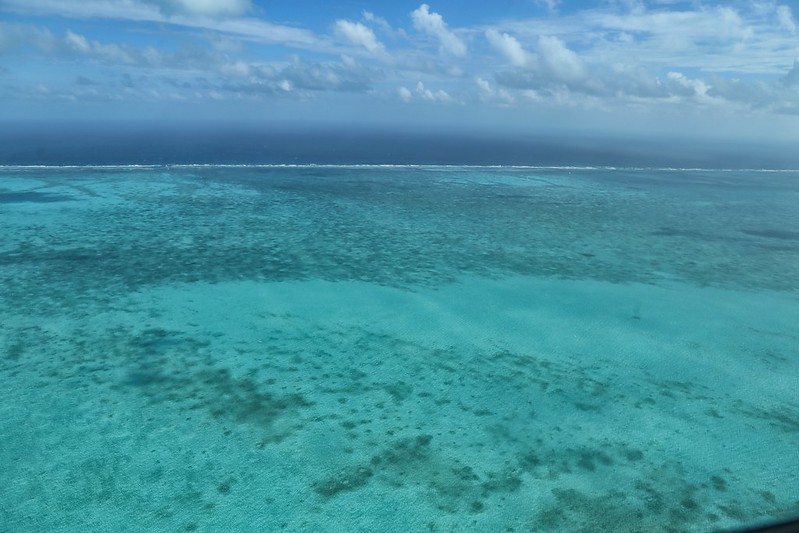
If you’ve never done a dive before, I strongly recommend getting certified in the ocean. Although that’s not practical for everyone, it’s a lot funner and helps to give you a much more enjoyable experience than getting certified in some place like a local lake with poor visibility.
PADI open water certification
There are two main components to earning your PADI open water certification. There’s the theoretical coursework and then the actual diving and skills portion.
eLearning
I suggest doing the PADI course work online. It will take you around 8 hours to complete the different sections and it will free up your time so that you won’t have to stay at your location for a very long time to complete the work and will allow you to get to diving as soon as you arrive. If you go the eLearning route, you can knock out the diving portion of your certification in as little as two days.
The way the eLearning works is that you watch videos and go through slides for several different sections. Each section covers various theoretical knowledge about diving from learning how to calculate no-stop times, how to avoid decompression sickness, how your gear works, and lots of other information on diving safety. At the end of each section, you’ll take a quiz that’s around 15 to 20 questions. After you’ve gone through all of the sections, you’ll then finish up with a final exam.
Overall, I didn’t find the quizzes or final exam very demanding but you do need to pay attention to all of the videos. Some questions can be answered correctly by merely applying common sense but others will require you to apply specific knowledge or facts, so pay close attention. And don’t be tempted to “game” the quizzes. Remember, all of this information is vital to your safety and your progress as a diver. Take your time and do your best to comprehend all the material as best as you can.
Beginning your training
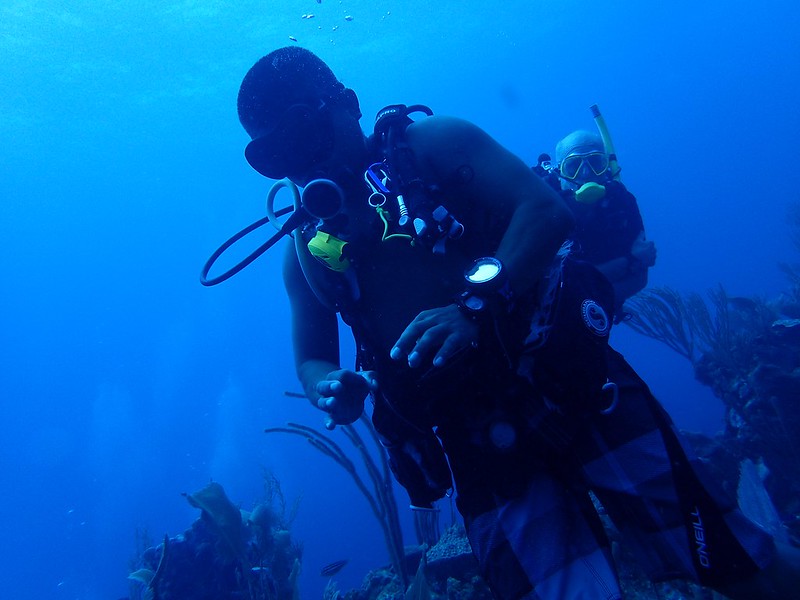
The day first starts out with you learning all about your equipment. If you payed attention during your classroom work, most of this will be a review. You’ll learn or refresh on how all of the scuba gear works and eventually put together your own scuba kit. Be sure to ask questions to make sure you understand how all of this works. You do not want to go diving down to depths of 60 feet with a cursory understanding of how to operate your inflator, BCD, etc.
Confined water dives
To earn your PADI open water certification, you’ll need to perform a number of confined dives and then four open water dives. The confined dives are in a swimming pool at the nearby hotel. In this pool you’ll practice recovering your respirator, emptying water from your dive mask, maintaining buoyancy, and other vital skills like sharing your oxygen. You’ll need to demonstrate most of the skills later on when you’re in the ocean so it’s very important to pay close attention when you’re trying them out in the pool. Again, this is definitely not the place to “fake” understanding.
Our instructor was great with us. He had plenty of patience to deal with us and made sure that we had mastered each skill set before we moved on to another skill. I liked that he was laid back but still on top of things so that we were still held accountable for learning the different skills and demonstrating our competency.
Open water dives
After all of our contained dives, it was time to get ready for our first dive. We had somewhat bad timing because the surf conditions were very rough. We were told that we could wait another day to see if the surf got a little better but we just decided to go for it. Thankfully, while the entry was a bit rough, we didn’t have much trouble ascending.
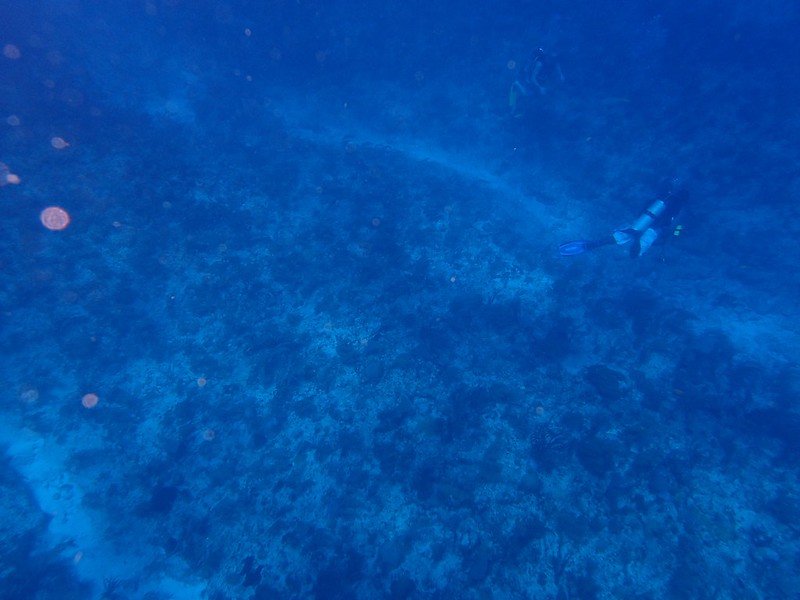
As soon as we ascended our instructor led us to a small patch of sand on the ocean floor where we’d perform a number of our skills. During our instruction, a couple of nurse sharks came by and rested just beside us as if to check out the show. On the bottom we ran through a number of skills like controlling buoyancy, respirator recovery, and a few others. If you can master these things in the pool, there’s no reason why you shouldn’t be able to do them in the water and we didn’t experience any issues.
Our instructor also paid close attention to our gear while underwater and made a few adjustments to help us remain a bit more stable.
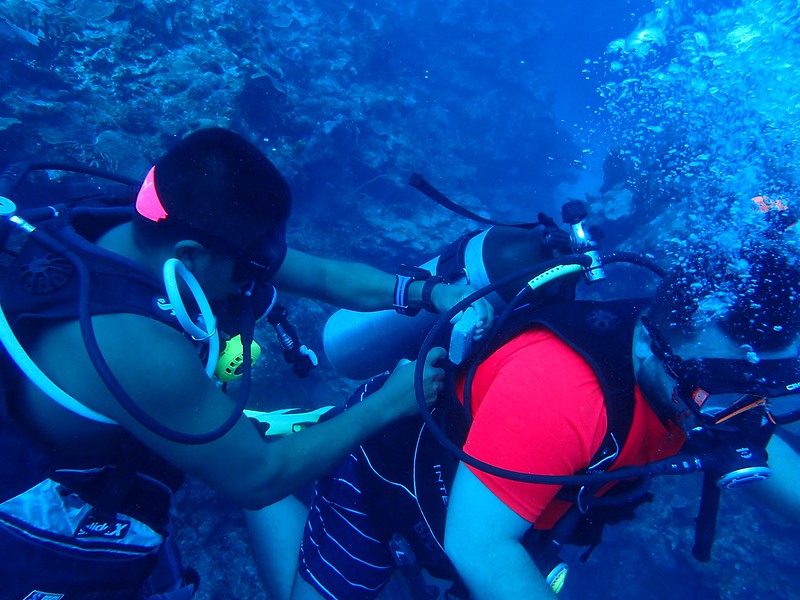
After each skills set demonstration we were able to get off and do some exploring!
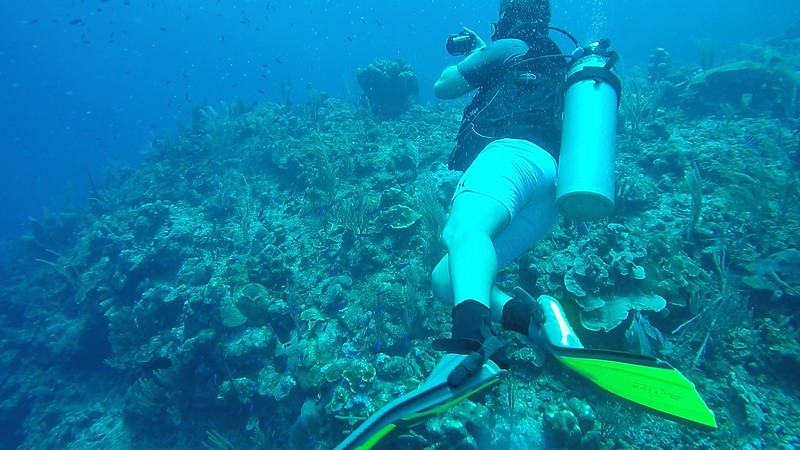
How much time you’ll have to explore depends on how comfortable your instructor is with your mastery of the skills. If you breeze through your underwater tests, then you should have plenty of time to enjoy exploring the reef. But if you struggle, then you’ll obviously have less time. I suggest to just focus on getting your skills down and you’ll probably end up having plenty of time to have some fun exploring the coral after you finish each skill set or between tests.
The instructors at the Belize Pro Dive Center are trained well on helping you to find wildlife out in the ocean. It can be difficult to spot wildlife as a beginner, but every instructor I’ve had experience with at Belize Pro Dive Center has been top-notch with helping us find all kinds of different wildlife.
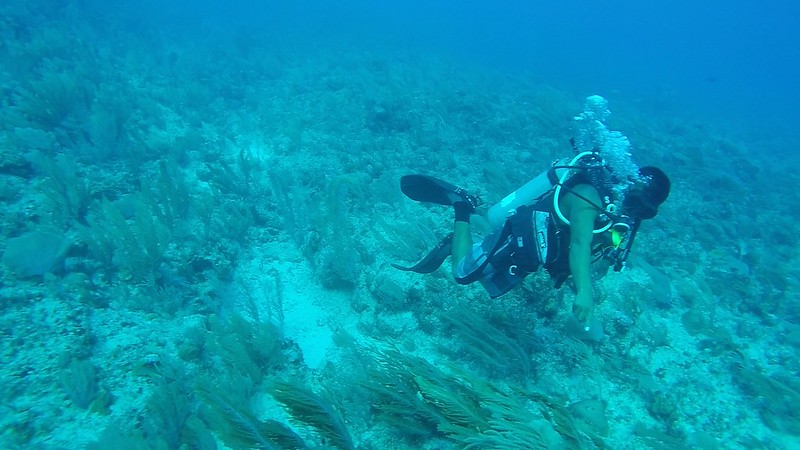
During our dive, one of the first animals we came across was an eel swimming outside of the rocks, which is apparently a rare sight during the day time. Later on we spotted another eel, which I got a close-up on seen below. Personally, out of all marine creatures, eels creep me out the most so I like to keep my distance from them. There’s just something about those crazy eyes!
What I really loved about these dives were the many nurse sharks that we came across!
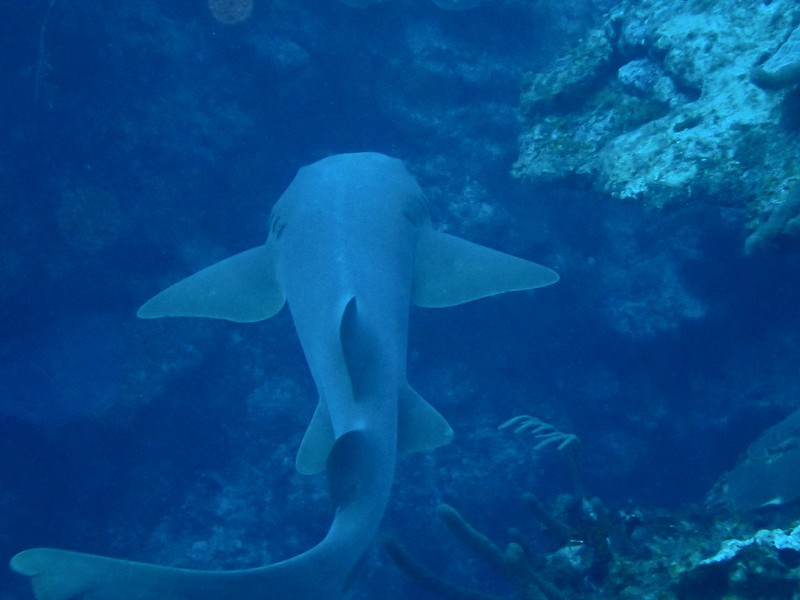
It seemed like every couple of minutes a new nurse shark came into view. In fact, as you can see in the photo below, I came very close to a nurse shark that I never even noticed, since I was still checking out my photos of the eel.
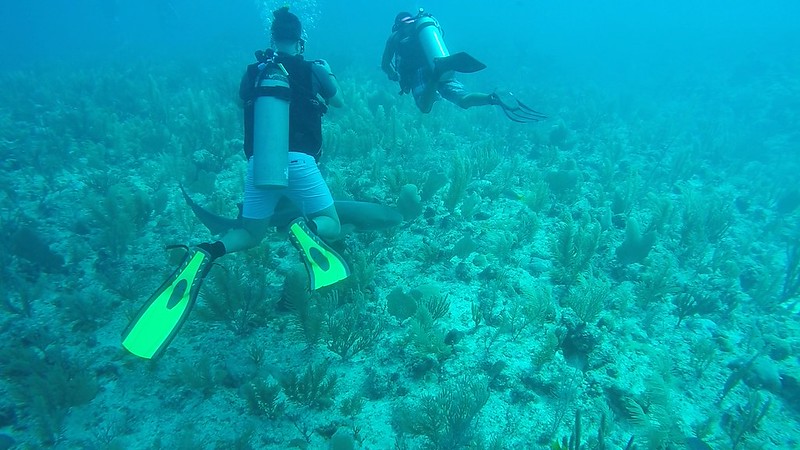
Luckily nurse sharks are usually harmless to humans. Just like almost every other animal, unless they feel provoked, they will generally leave you alone.
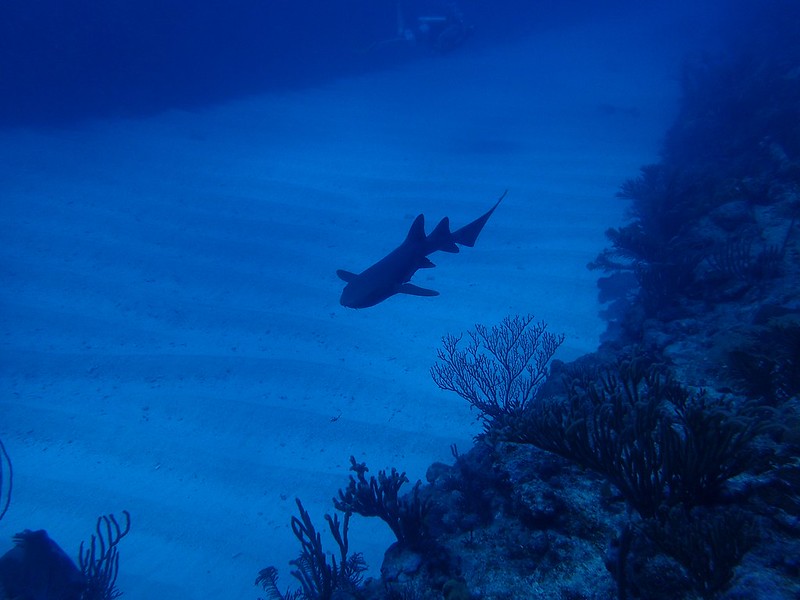
On almost every dive we’ve done in the Belize Barrier Reef, we’ve encountered a turtle and this trip was no exception. On one of our dives, we came across a very large green turtle. It made its way down to the sea floor and just kind of hung out down there, perhaps resting.
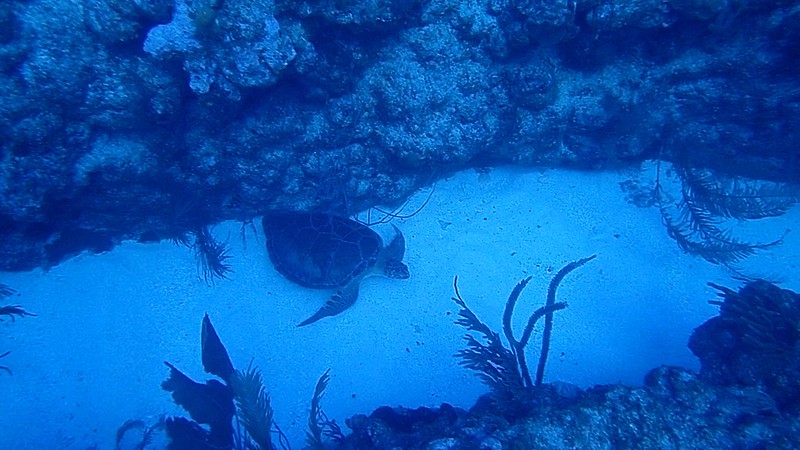
In the video below you can see the turtle just hanging out. It’s hard to tell just how large the turtle was but even a group of other more experienced divers agreed it was one of the largest sea turtles they had ever seen. In the video, you can also see some more nice shots of a couple of the nurse sharks we came across. These types of encounters are fairly common down there and are a big reason why I love diving in Belize.
In addition to the eels, sharks, and turtles, there’s plenty of other fascinating fish to and beautiful coral to check out. I’ve done dives in other places like the Bay Islands off Honduras and the Great Barrier Reef, but I still think that the Belize Barrier Reef offers some of the best waters and reef to explore in the world. It’s really nice that the reef is so close to the shore and every dive that I’ve done has impressed me with diverse wildlife, great visibility, and healthy coral. In short, I love diving there and would recommend it for everyone.
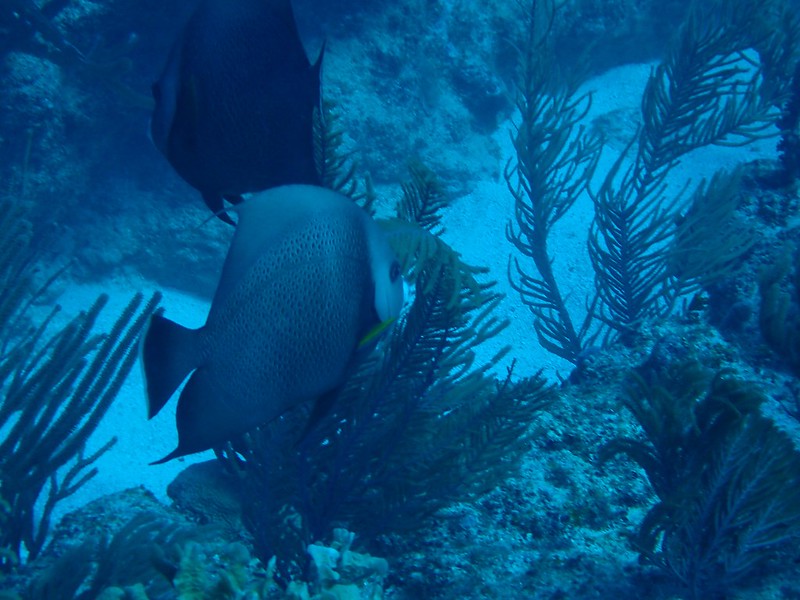
After each dive, our boat was just seconds away and came to quickly pick us up. That’s important to me because although it’s easy for me to remain completely calm while underwater, I don’t really like hanging out on the surface of the ocean, especially if I can’t spot the boat for pick-up.
Final Word
The Belize Pro Dive Center has to be one of the best places to get scuba certified in the Caribbean. The staff is very talented, prioritizes safety, and are all very knowledgable and passionate about what they do. They are also just a cool bunch of people that help you stay relaxed and able to enjoy your diving. If you’re trying to find a good place to get scuba certified, then I fully recommend giving them a call. Rates for eLearning certifications start at $375.
Daniel Gillaspia is the Founder of UponArriving.com and the credit card app, WalletFlo. He is a former attorney turned travel expert covering destinations along with TSA, airline, and hotel policies. Since 2014, his content has been featured in publications such as National Geographic, Smithsonian Magazine, and CNBC. Read my bio.

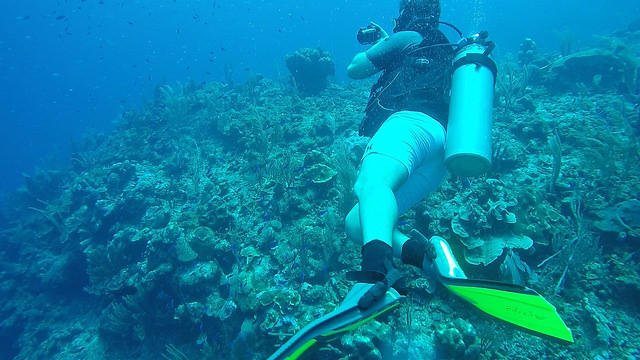
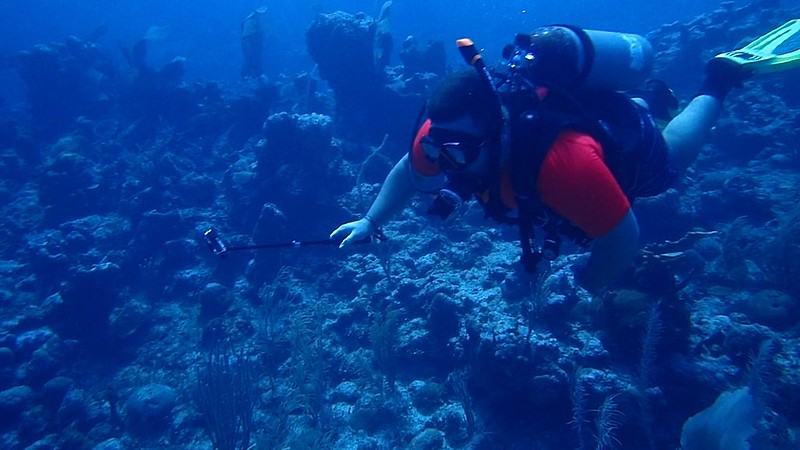
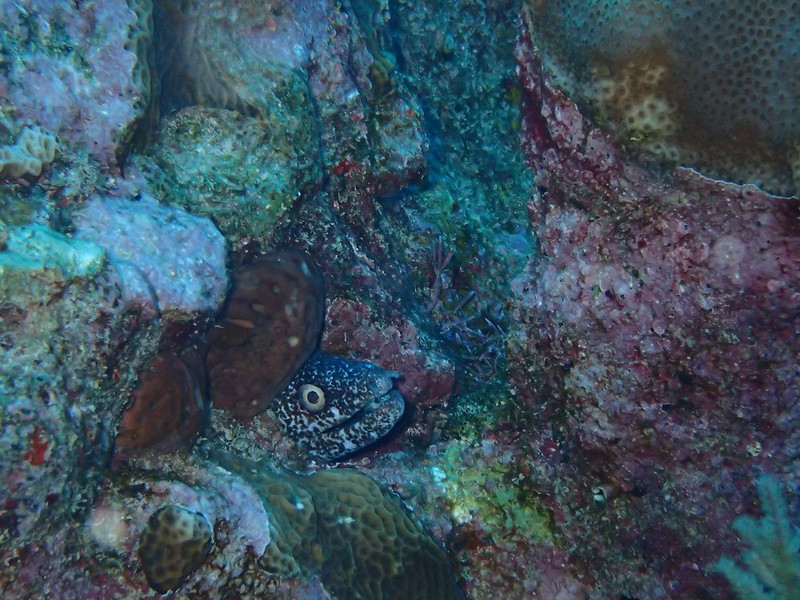
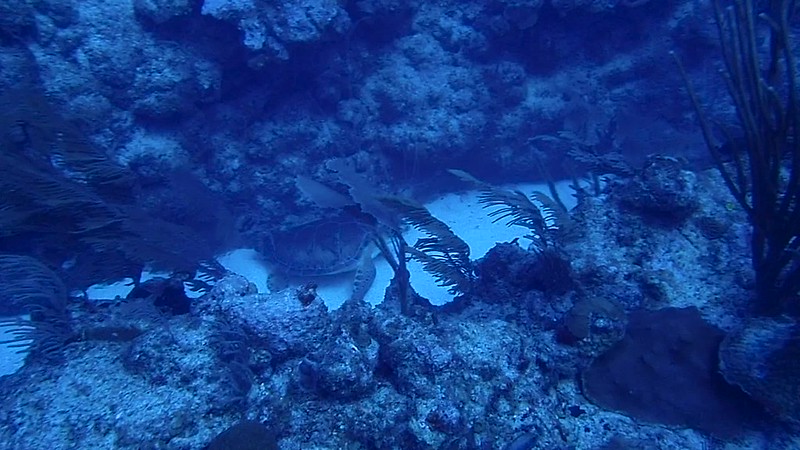
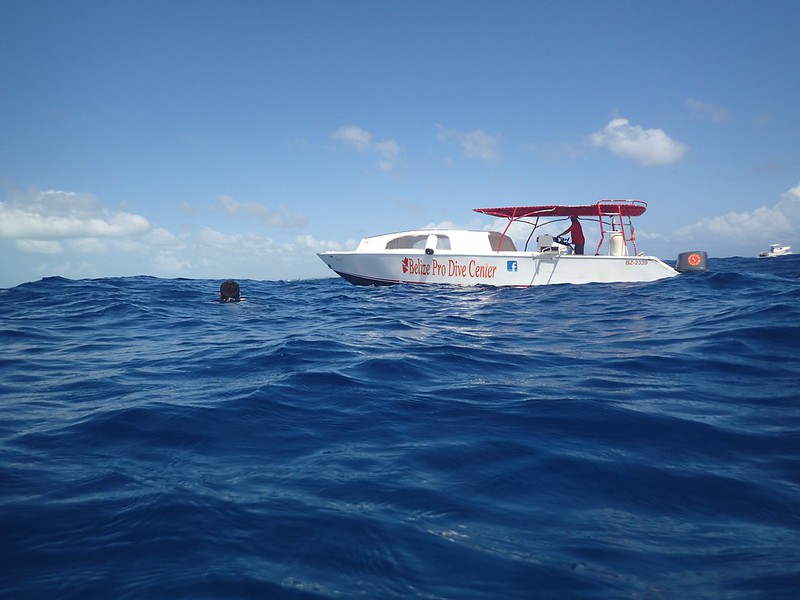
Hi- I want to refresh my certification and also get my 30 year/old son certified. I think I would just do the whole thing over along with him. We would do the PADI written portion online, but then come for the rest at your shop. Could you give me some costs? Hotel recommendations?
Hi David, I’m actually not affiliated with the shop. I suggest writing them here for exact quotes: [email protected]. They should get back with you very quickly (feel free to tell them I sent you), As for hotels, I stayed once at the Grand Colony Villas which was nice and located right next to the dive shop. I also stayed at the White Sands Cove which was cheaper but located farther away on the north portion of the island.